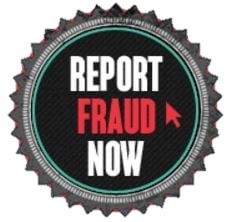COVID-19 VACCINATION AND FRAUD
Wyoming Medicaid is updating you on the latest COVID-19 resources available in your area and alerting you about COVID-19 scams.
 Fraud is defined in Medicaid rules as “An intentional deception or misrepresentation made by a person with the knowledge that the deception could result in some unauthorized benefit to himself or some other person. It includes any act that constitutes fraud under applicable federal or state law.”
Fraud is defined in Medicaid rules as “An intentional deception or misrepresentation made by a person with the knowledge that the deception could result in some unauthorized benefit to himself or some other person. It includes any act that constitutes fraud under applicable federal or state law.”
Waste encompasses the over-utilization or inappropriate utilization of services and misuse of resources, and typically is not a criminal or intentional act.
Abuse is related to poor fiscal, business or medical practices that increase costs, such as reimbursement for services that are not medically necessary, coding errors, and other mistakes. An honest mistake should lead to the return of funds to Medicaid.
Providers who improperly bill for services and beneficiaries who cause unnecessary costs, risk losing continued eligibility to participate in the Medicaid program and may face criminal and civil monetary penalties.
Some examples of fraud, waste and abuse include:
- A Medicaid client sharing his or her card with other people who are not entitled to receive Medicaid services;
- Billing for services not rendered;
- Modifying medical records;
- Utilizing unlicensed staff;
- Billing duplicate claims;
- Upcoding, etcetera…
Let us know if you’ve witnessed instances of fraud, waste and abuse!
Program Integrity Fundamentals:
1. Fraud, waste and abuse are investigated through preliminary and full-scale investigations. These investigations determine whether: recovery of state/federal funds is warranted, other actions are necessary to remediate areas of non-compliance, or if law enforcement partners need to become involved.
2. Program Integrity Activities:
- Provider and Member Education
- Pre and Post-payment Review of Claims
- Investigate Referrals / Complaints
- Medicaid Program Recommendations
3. How Program Integrity determines areas to review:
- Data Mining
- Data Analytics
- Review of Referrals / Complaints
- Media Monitoring
- Collaboration with Federal Partners
4. Audits/Investigations
- Internal-State (Medical Reviews, Claims Payment Reviews)
- External Federal Audits (PERM, Medicaid Integrity Contractor, Statewide Compliance Audit)
- Provider Self-Audits
- State Provider Audits Conducted Through Record Requests
- Imposition of Adverse Action(s) (i.e. Overpayment Recovery, Payment Suspension)
- Opportunity to Request Reconsideration
- Administrative Hearing Process
Program Integrity Resources & Links
Many State and national stakeholders have oversight of program integrity activities. You can find more information and links to these external parties, below.
Program Integrity Resources & Links
Electronic Code of Federal Regulations
Medicaid Program Integrity Education At-A-Glance
Provider, Client, and Health Management/Utilization Management (HM/UM) Portals
Centers for Medicare & Medicaid Services (CMS), Center for Program Integrity
| Medicaid Integrity Group (MIG) | CMS | Reviews provider activities, audits claims, identifies overpayments, educates providers, supports state PI teams and MFCUs | Activities completed by vendors known as Medicaid Integrity Contractors (MICs) |
| Payment Error Rate Measurement (PERM) Program | CMS |
Conducts audits to measure error rates of improper payments for Medicaid and Children’s Health Insurance Program (CHIP) |
17 states are audited each year using random sampling techniques to calculate payment error rates |
| Medicare-Medicaid (Medi-Medi) Data Match Program | CMS | Helps states analyze billing patterns across Medicare and Medicaid | Participation is optional |
| Office of the Inspector General (OIG) | HHS | Audits, investigates and assesses all HHS programs | Funds and oversees state MFCUs |
| Department of Justice (DOJ) | DOJ | Monitors and enforces federal laws and prosecutes criminals | Directs law enforcement agencies, including the Offices of the U.S. Attorneys, the Criminal Division and the Federal Bureau of Investigation (FBI) |
| Medicaid Integrity Institute (MII) | CMS/DOJ | Provides customized training, technical assistance and support to state Medicaid PI employees | National Medicaid PI training center for states located at DOJ’s National Advocacy Center in Columbia, S.C. |
| Health Care Fraud and Abuse Control (HCFAC) Program’s Health Care Fraud Prevention and Enforcement Action Team (HEAT) | DOJ/HHS |
HCFAC coordinates federal, state and local law enforcement activities related to investigating and prosecuting criminal activity; HEAT investigates suspicious Medicare and Medicaid providers |
Staff includes law enforcement agents, prosecutors, attorneys, auditors and evaluators |
| Government Accountability Office (GAO) | Congress |
Audits federal agencies, evaluates programs and makes recommendations for improvements |
Congressional agency investigates spending and fraud across federal programs |
This page was last updated on March 2, 2022.

